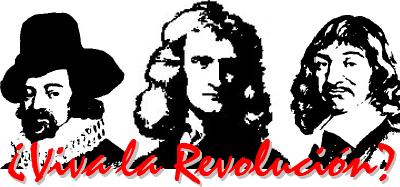Join the ISN at MIT from June 9th-13th,
2008
This summer the ISN will hold its second annual tutorial for students called the
“Summer Seminar,” followed by a small conference for students and scholars. In
addition to reviewing this overview page, click here
for the tentative Plan and Schedule for the Summer Seminar, and
click here for logistical and
enrollment information.
Click here for information on the Summer Conference. All this information (overview, schedule,
and logistics) as well as an application form is also available
for download as a
PDF file or
zipped PDF.

ISN Summer Seminar 2008:
"Who Won the Scientific Revolution?”
I have been saying that modern science broke down
the barriers that separated the heavens and the earth, and that it united
and unified the universe. And that is true. But, as I have said, too, it
did this by substituting for our world of quality and sense perception,
the world in which we live, and love, and die, another world—the world of
quantity, of reified geometry, a world in which, though there is place for
everything, there is no place for man.
— Alexandre Koyré, Newtonian Studies
The Scientific Revolution marks a watershed in the history of
human thought and action. It divided knowledge from common sense and severed
practice from received mores. This transition has led to tremendous progress
in our understanding and control of the natural world as manifested through
technology. But in every struggle there are losers as well as winners.
Humanity has gained enormous benefits by means of modern science, but has
it lost something in the process? Far less obvious than the victories are
the real losses—losses that reveal themselves when one contrasts natural
science’s brilliance at manipulating nature with its inability to speak to
the questions that should be central to any study of the material world:
What exactly is nature? And what is the place of humankind within it?
The Revolution swept away the vibrant world of form and meaning
and replaced it with a plastic but desiccated world of mathematical
abstractions. Value and meaning were banished from the material, “real” world
of “extended things” to the shadowy world of “thinking things.” Soon enough
the ephemeral world of res cogitans was put under interdict, since it was in
principle inaccessible to the power of the method. Now modern neuroscience is
making the final assault on the “ghost in the machine,” hoping at last to
retire our final questions by a fully adequate mechanistic explanation of
self-awareness in us “meat machines.”
But can our fundamental questions truly be answered by reducing
everything—including the questioner—to particles and proteins, efficient
causes and mathematical laws? Or are the principles and methods of the
Revolution such that the knowledge they provide always falls short of knowledge of
the full truth of things? Predicting and manipulating is not the same as
understanding, no matter how convenient it may be to believe so. The problem
is not so much the hostility of the Revolution and resulting scientific
worldview to traditional conceptions of the cosmos and of human nature, but
rather the possibility that the scientific worldview has produced a radical
misunderstanding of the very thing it seeks to explain: the material world
and what it contains, including in the end the act of human understanding
itself. In every struggle there are winners and losers, but when humanity
itself is absorbed into the reductive and closed causal system of modern
science, who is left to win?
We must begin to ask the fundamental questions again. Does the
knowledge we have gained by modern science truly exclude qualities, forms, ends,
and meaning from the natural world? Or have we allowed a set of useful
methodological choices artificially to restrict our range of reasoning about
nature? Might it be possible to recover a rational grasp of the qualitative
depth and beauty in nature while retaining the manifold achievements of the
Revolution? Are we willing to open ourselves to the risk of discovering that
the pre-modern understanding of nature is not only reasonable and defensible,
but consistent with the best scientific evidence? Above all: regardless of its
convenience or inconvenience to humans, what is the full truth about the natural
world?
The Institute for the Study of Nature invites you to join us in a
Summer Seminar the week of June 9th-13th, 2008, on the campus of MIT to begin
considering these questions with the care they deserve. An
initial Plan and Schedule has been posted.
Follow this link for logistical
information and directions on how to confirm your place. (We will soon be posting more detailed information about the related academic
Summer Conference that
will begin at the end of the seminar on Friday, June 13th and continue
through
Saturday the 14th. We encourage students to plan to stay for that conference.)

